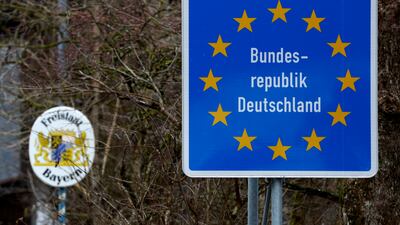Germany is working on plans to simplify the path to citizenship by speeding up the naturalisation of immigrants and allowing dual nationality.
The Ministry of the Interior said it would unveil a draft law “soon” that will be submitted to the cabinet for approval, a spokesman said on Friday.
The overhaul of Germany's citizenship legislation was a key pledge made by Chancellor Olaf Scholz's centre-left-led coalition when it came to power a year ago.
Under proposed new rules, naturalisation will be possible after five years of residency instead of eight, and even as little as three years for people deemed to have integrated particularly well.
Children born in Germany would automatically become citizens if one of their immigrant parents has lived in the country legally for at least five years.
The ministry also plans to relax some language requirements for elderly immigrants and make it easier for people to hold several nationalities.
It comes as Germany, an ageing country home to more than 80 million people, faces an acute shortage of workers across numerous industries.
The Ministry of Labour and Social Affairs has predicted a shortfall of about 240,000 skilled workers by 2026 in Europe's biggest economy.
“We will create a modern citizenship law,” the three-party government said in its coalition agreement.
“To this end, we will make multiple citizenship possible and simplify the path to acquiring German citizenship.”
The European Union's coastguard agency Frontex reported that there were about 275,000 attempts to enter Europe without authorisation in the first 10 months of this year, a six-year record.
Most are coming overland through the Balkans, but many cross the Mediterranean Sea in unseaworthy boats.
In recent weeks, several hundred people hoping to enter Europe have been stranded at sea aboard aid ships while countries bicker over whether and where they should be allowed to disembark.
Once migrants reach the EU, many want to move to other countries, but deciding the rules on how they can move around has become a diplomatic headache.


